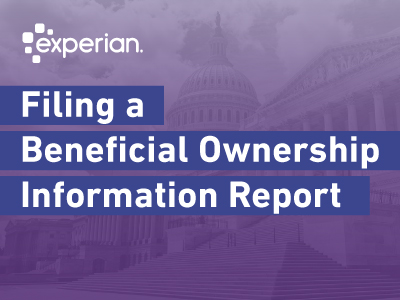Latest Posts

It's been said often that small businesses are the engine of our economy, and they really are. It's something we don't ever take for grant here at Experian. Because Small Business Matters! So we want to take a moment to thank all of our small business customers for choosing Experian. From the entire team here at Experian thank you small business. From our business, to your business, to new business and beyond. Happy Thanksgiving from Experian
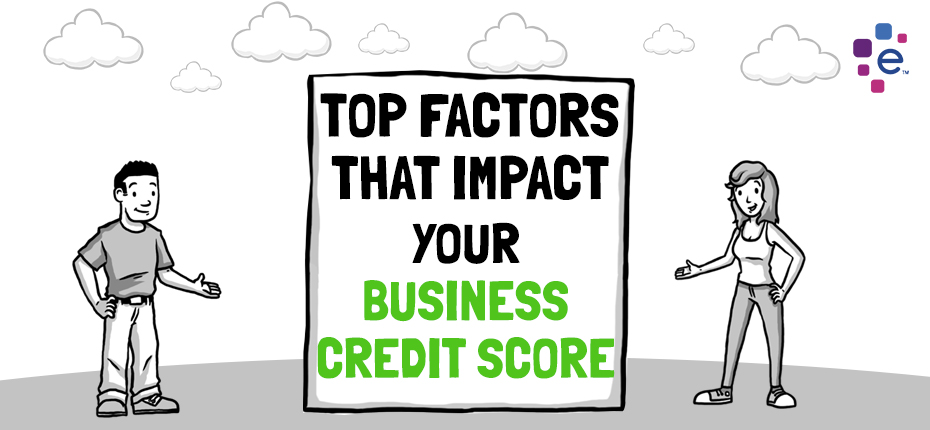
In this business credit education post we cover the top factors that impact business credit your business credit score
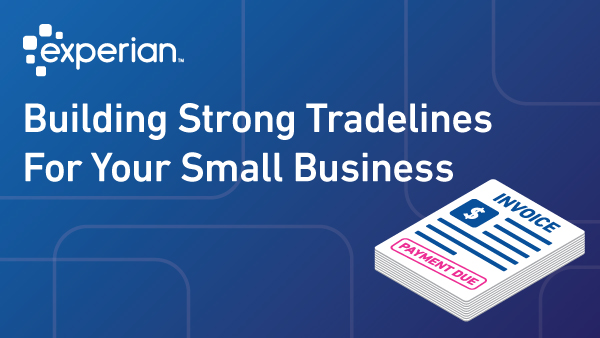
If you're a small business owner, tradelines can be one of your most powerful tools for establishing and strengthening that credit profile. A tradeline is an account between businesses that acts like a loan or line-of cash from vendors to companies without any security involved.
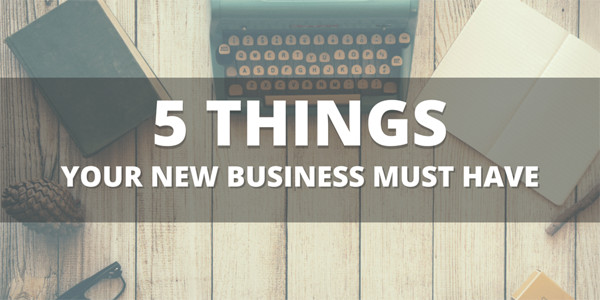
What does it take for a new business to succeed? Contrary to popular belief, you need more than a great product and some funding to get your business off the ground. Here's a new business checklist to help you make sure you've got everything covered. 1. A Mobile-Friendly Website: Your Digital Storefront The percentage of people who access websites from their phones and tablets is still on the rise. Therefore, it’s really important to make sure that your site looks good on any device, and still highlights the same essential information you want all of your customers to see. It's no longer an option, but a necessity in today's mobile-first world. Let's take it a step further: Think beyond responsiveness: Ensure your website offers a seamless user experience across all devices, not just different screen sizes. Consider mobile-specific features like click-to-call buttons and fast-loading pages. Optimize for local search: If your business has a physical location, prioritize local SEO strategies to get in front of potential customers searching for nearby options. Embrace visual storytelling: Use high-quality images and videos to showcase your products or services effectively, catering to shorter attention spans on mobile devices. 2. Content Marketing: Attract, Engage, Convert Well-written content is indeed powerful, but go beyond static information. Consider these content marketing strategies: Create diverse content formats: Blog posts, infographics, videos, case studies, and even interactive quizzes can cater to different learning styles and preferences. Establish thought leadership: Share your expertise and insights on industry trends and challenges to position yourself as a trusted resource. Leverage storytelling: Craft compelling narratives that connect with your audience on an emotional level and build brand loyalty. Optimize for search engines: Implement SEO best practices to ensure your content reaches the right audience through organic search. 3. Compelling Calls to Action: Guide Your Audience Don't leave your website visitors guessing what to do next. Craft clear and actionable CTAs that align with your marketing goals. Here are some tips: Use strong verbs and specific language: Instead of "Learn More," try "Download Our Free Guide" or "Schedule a Consultation Today." Place CTAs strategically: Position them where they make sense in the user flow, like at the end of informative blog posts or product pages. Personalize your CTAs: Consider A/B testing different CTAs with different audiences to see what resonates best. Track and analyze results: Monitor the performance of your CTAs to understand what's working and adjust them accordingly. 4. Marketing Beyond Paid Ads: Building a Multifaceted Strategy While paid advertising can be a valuable tool, it's crucial to diversify your marketing approach. Here are some additional ideas: Embrace email marketing: Build an email list and nurture leads with targeted campaigns that offer valuable content and special offers. Engage on social media: Actively participate in relevant online communities, share valuable content, and respond to comments and messages. Partner with influencers: Collaborate with individuals who have established credibility and reach in your target audience. Network and build relationships: Attend industry events, connect with other businesses, and participate in local initiatives. 5. Customer Centricity: The Heart of Success Going beyond simply wanting to help people is crucial. Truly understanding your customers' needs, challenges, and aspirations is key to building lasting relationships. Here's how: Conduct market research: Gather insights into your target audience through surveys, interviews, and focus groups. Track customer feedback: Actively solicit and analyze feedback from customers through surveys, reviews, and social media mentions. Personalize your approach: Segment your audience and tailor your marketing messages and offerings to their unique needs. Deliver exceptional customer service: Prioritize building positive relationships with your customers through prompt and helpful responses. Bonus Tip: Maintain a Good Business Credit Score Maintaining a good business credit score is vital for the long-term health of your company, no matter its size. It directly impacts your ability to secure funding for growth, negotiate favorable terms with suppliers, and even attract talented employees. A healthy score reflects strong financial responsibility, making you a more attractive partner and reducing the risk associated with doing business with you. Equally important is regularly monitoring your business credit report to identify and address any errors or fraudulent activity promptly. These issues can not only damage your score but also expose your business to financial vulnerabilities. Vigilant monitoring allows you to proactively address concerns, protecting your creditworthiness and safeguarding your company's financial security. Bonus Tip: Embrace Agility and Continuous Learning The business landscape is constantly evolving. Be prepared to adapt your strategies, learn from your mistakes, and stay ahead of the curve. Regularly reassess your approach, invest in professional development, and keep an eye on industry trends. Starting a new business can be overwhelming because there are so many things that you have to think about. That’s why it’s important to become an entrepreneur for the right reasons and do something you love. Above all, remember to have fun! Sources: http://www.smartinsights.com/mobile-marketing/mobile-marketing-analytics/mobile-marketing-statistics/ http://www.seo-e.com/online-marketing/develop-strong-call-to-action.htm https://www.sba.gov/blogs/does-your-business-have-marketing-plan https://www.thinkwithgoogle.com/articles/b2b-digital-evolution.html
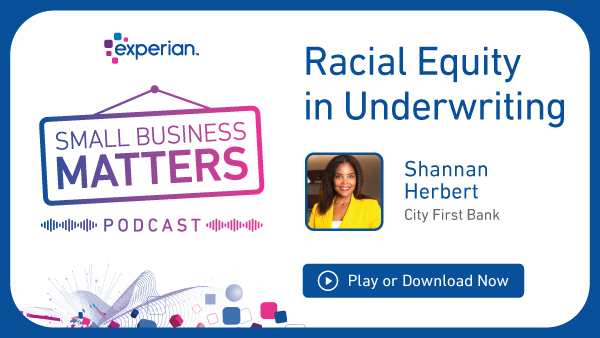
Shannan Herbert discusses racial equity in small business lending related to the work she is doing with Beneficial State Foundation on our podcast.
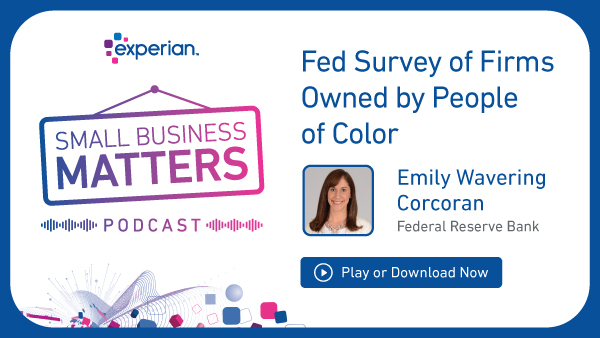
Emily Wavering Corcoran from the Federal Reserve discusses the latest fed survey report of firms owned by people of color.
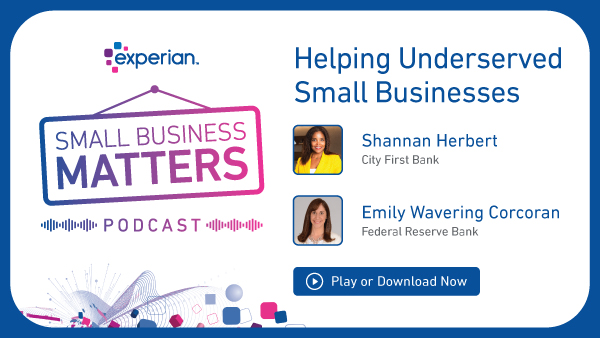
This week on the Small Business Matters podcast we sit down with two exceptional leaders doing incredible work on behalf of the small business community.
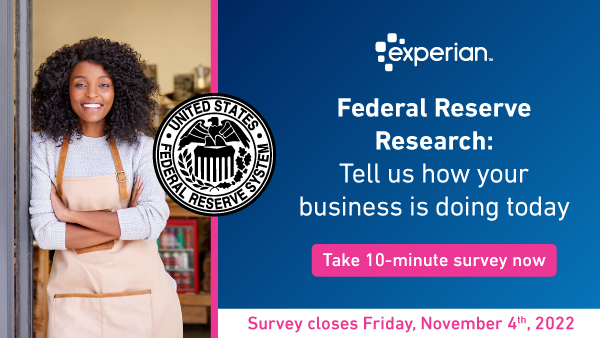
The Fed has begun collecting responses to the Small Business Credit Survey, we encourage small businesses with less than 500 employees to participate.
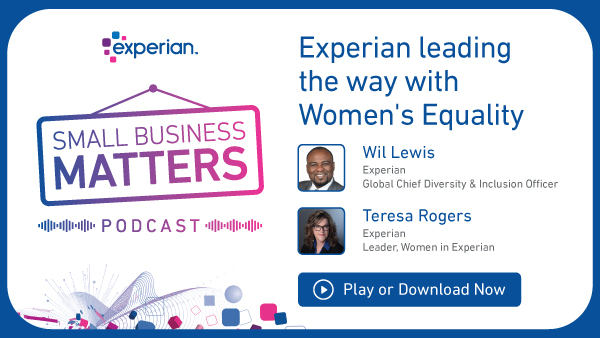
Two senior leaders from Experian join the Small Business Matters podcast to share their perspectives on equality and what that means here at Experian.
